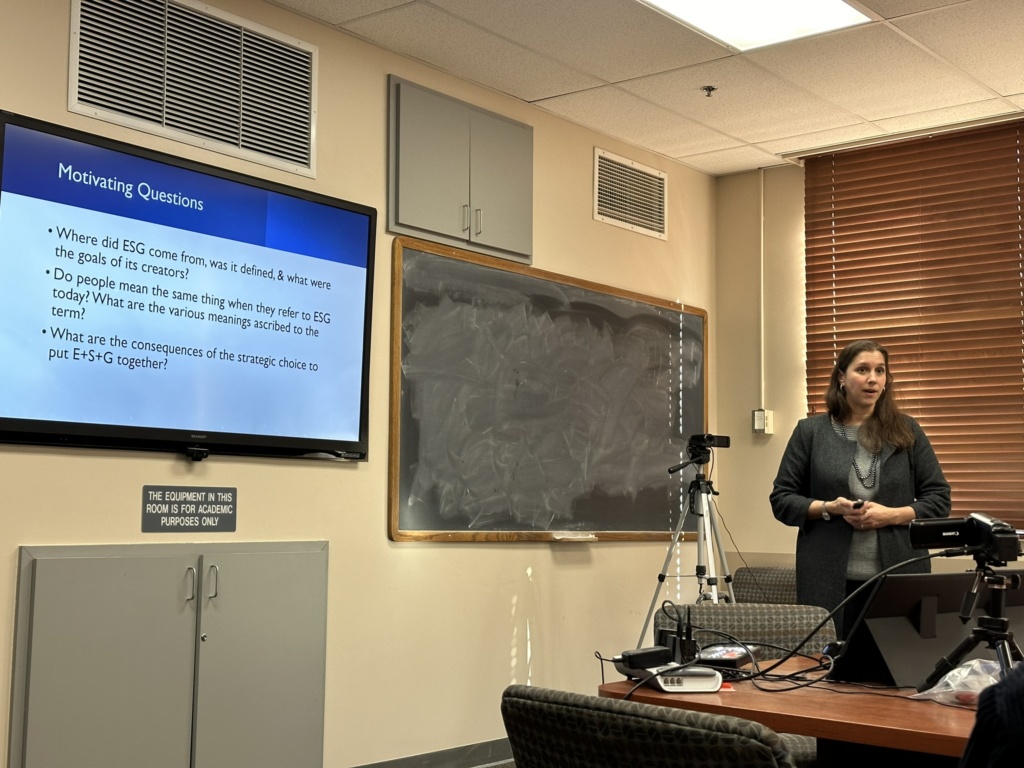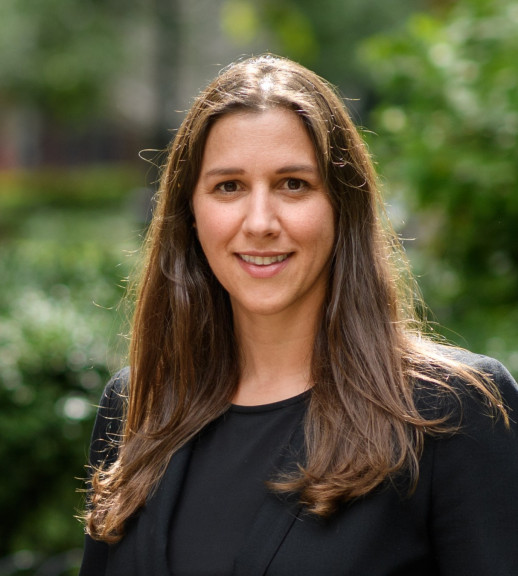Elizabeth Pollman, Professor of Law and Co-Director of the Institute for Law and Economics at the University of Pennsylvania Carey Law School, delivered a thought-provoking and informative talk detailing her paper, The Making and Meaning of ESG (European Corporate Governance Institute – Law Working Paper No. 695/2022). Professor Pollman’s presentation was part of the Freedom Center’s Justice Law and Capitalism Talk Series.
“ESG is one of the most notable trends in corporate governance, management, and investment of the past two decades,” Professor Pollman writes. “It is at the center of the largest and most contentious debates in contemporary corporate and securities law. Yet few observers know where the term comes from, who coined it, and what it was originally aimed to mean and achieve. As trillions of dollars have flowed into ESG-labeled investment products, and companies and regulators have grappled with ESG policies, a variety of usages of the term have developed that range from seemingly neutral concepts of integrating ‘environmental, social, and governance’ issues into investment analysis to value-laden notions of corporate social responsibility or preferences for what some have characterized as ‘conscious’ or ‘woke’ capitalism.”

During her talk, Professor Pollman provided a history of the term ESG, noting that the United Nations and leaders in the financial services industry created it. The effort was spearheaded by former Secretary-General Kofi Annan and the product of the 2004 Global Compact, Who Cares Wins: Connecting Financial Markets to a Changing World. The term was explicitly created without a precise definition to be flexible and address wide-ranging issues. This was intended to provide a “big tent” to appeal to a broad range of investors and stakeholders, be globally applicable and customizable by context, and allow for evolution over time.
Professor Pollman noted that the perceived benefits of ESG’s broad definition also give rise to challenges and criticism. For example, it is difficult to pinpoint the relationship between ESG and economic performance, and the multitude of rating systems are dismissed as subjective, inconsistent, and vulnerable to the practice of greenwashing, where public messages provide misleading or false information about the environmental impact of a company or its products.
The debate over ESG will continue to evolve, and Pollman notes that its very features, which have “fostered a global dialogue, attracted trillions of investment dollars, and fueled regulatory reform, are also the source of challenges and critiques that have emerged and will continue into the foreseeable future.”
The FC Justice, Law, and Capitalism Talk Series is curated by Saura Masconale, Freedom Center Associate Director and Assistant Professor of Political Economy and Moral Science, and Simone Sepe, Freedom Center Faculty, Chester H. Smith Professor, and Professor of Law and Finance. Professor Pollman’s talk is the second of four in the series, following William Bratton, Nicholas F. Gallicchio Professor of Law, Emeritus, at the Penn Carey Law School, who gave a talk discussing his paper, Shareholder Primacy Versus Shareholder Accountability, published in the European Corporate Governance Institute Working Paper Series in Law.
Learn more about the FC Justice, Law, and Capitalism Talk Series.


